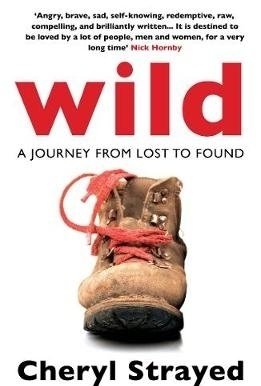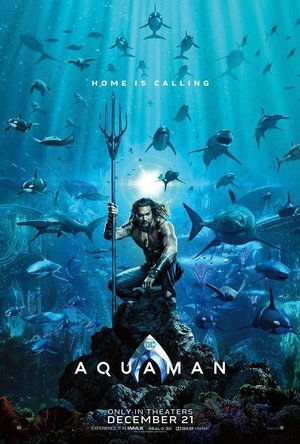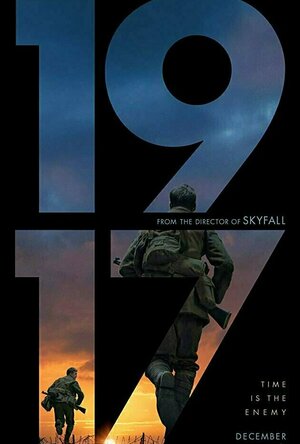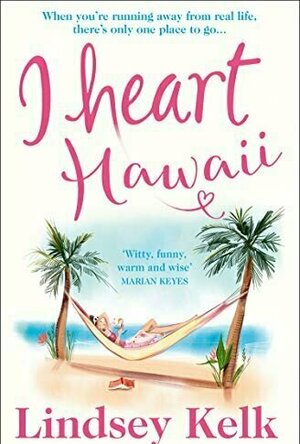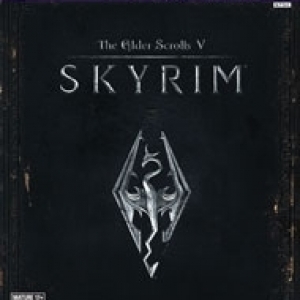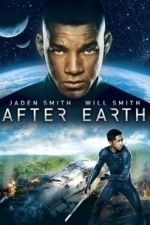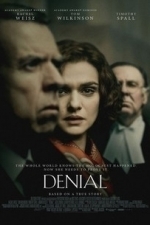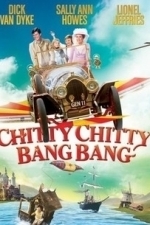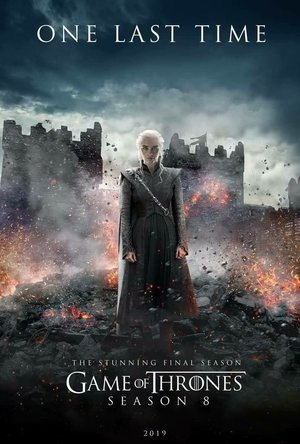Search
Search results
Hazel (1853 KP) rated Wild: A Journey from Lost to Found in Books
Dec 7, 2018
<i>I won this book through Goodreads First Reads</i>
Recently brought to the big screen starring Academy Award Winner Reese Witherspoon, <i>Wild</i> is a true account of Cheryl Strayed's epic hike along the Pacific Crest Trail. Over the course of three months Cheryl treks from Mojave, California, through Oregon before finishing at the Bridge of the Gods.
<i>Wild</i> is a compelling story that reveals a young woman's determination and bravery to complete her impulsive walk of eleven hundred miles. Ill-prepared and still struggling with the death of her mother a few years earlier, Cherly sets off unknowing of the strength she would need to complete her challenge.
As Cheryl writes the reader learns how she survey the severe changes in weather conditions, her lack of food and money as well as her damaged feet and missing toenails.
Cheryl Strayed's story is an inspiration to readers as she proves that a human being can go above and beyond expectation in extraordinary circumstances. Despite having the truth laid out on paper, it is impossible to imagine the emotions and physical exertion Cheryl must have gone through.
A good thing about this biographical tale is that Cheryl's narrative does not solely focus on the PCT but refers back to events of the past that have made Cheryl who she is today and influenced her decision to begin the trail. The reader begins to know the real Cheryl and understand what she is feeling and thinking at different points in the book.
Split into five parts, Cheryl has used famous quotes to reflect the content of the following chapters. This takes the book to a higher intellectual level than just having the narrative.
Even if reading about someone going for a long walk sounds unappealing, it is so beautifully written, full of raw emotion that it will be enjoyed by many different readers whether male or female, old or young.
Having not yet seen the film it is impossible to pass comment on it, however the book is definitely worth making the time to read.
Recently brought to the big screen starring Academy Award Winner Reese Witherspoon, <i>Wild</i> is a true account of Cheryl Strayed's epic hike along the Pacific Crest Trail. Over the course of three months Cheryl treks from Mojave, California, through Oregon before finishing at the Bridge of the Gods.
<i>Wild</i> is a compelling story that reveals a young woman's determination and bravery to complete her impulsive walk of eleven hundred miles. Ill-prepared and still struggling with the death of her mother a few years earlier, Cherly sets off unknowing of the strength she would need to complete her challenge.
As Cheryl writes the reader learns how she survey the severe changes in weather conditions, her lack of food and money as well as her damaged feet and missing toenails.
Cheryl Strayed's story is an inspiration to readers as she proves that a human being can go above and beyond expectation in extraordinary circumstances. Despite having the truth laid out on paper, it is impossible to imagine the emotions and physical exertion Cheryl must have gone through.
A good thing about this biographical tale is that Cheryl's narrative does not solely focus on the PCT but refers back to events of the past that have made Cheryl who she is today and influenced her decision to begin the trail. The reader begins to know the real Cheryl and understand what she is feeling and thinking at different points in the book.
Split into five parts, Cheryl has used famous quotes to reflect the content of the following chapters. This takes the book to a higher intellectual level than just having the narrative.
Even if reading about someone going for a long walk sounds unappealing, it is so beautifully written, full of raw emotion that it will be enjoyed by many different readers whether male or female, old or young.
Having not yet seen the film it is impossible to pass comment on it, however the book is definitely worth making the time to read.
Gareth von Kallenbach (980 KP) rated Aquaman (2018) in Movies
Jun 19, 2019
In a tale as vast and epic as the Oceans that frames the story: “Aquaman” has arrived in a flurry of action and adventure.
The film tells the origin of Arthur Curry (Jason Momoa), who is half mortal and half Atlantean, thanks to his human father rescuing his mother, an Atlantean royal, and falling in love.
The love between his parents is forbidden under the customs of the people of Atlantis and in time his mother is forced to return to Atlantis, leaving Arthur to be raised by his human father.
When his power-hungry half-brother Orm (Patrick Wilson), plots to wage war on the surface world, Princess Mera (Amber Heard), attempts to convince Arthur to make his first trip to Atlantis to challenge Orm for the throne and become king. Naturally a lifetime of resentment toward the people who divided his parents has made Arthur unwilling to help, especially when the key to victory requires locating and retrieving an artfact that will bring peace to
his people and those of the surface world.
With an army of Atlantean soldiers pursuing him as well as the evil Black Manta set on revenge, Arthur faces an uphill battle as he races against time and his own conflicted emotions to save the day.
Director James Wan has done an amazing job of giving audiences a lavish and action-filled experience that never loses the characters as the main
focus of the story. He cleverly blends the lore of Aquaman with a modern
twist yet stays true to the character. Jason Momoa has an intriguing presence, giving the character more depth than expected. The supporting cast is solid and the film rarely loses pacing or fails to keep you fascinated throughout.
Warner has had some issues with recent adaptations of DC characters but, like Wonder Woman, “Aquaman” delivers on action and storytelling. The film also contains a strong message about ecology without being preachy. This is one of the more entertaining films of the year and should make fans of the character happy. I look forward to seeing what adventure comes next for Aquaman.
http://sknr.net/2018/12/18/aquaman/
The film tells the origin of Arthur Curry (Jason Momoa), who is half mortal and half Atlantean, thanks to his human father rescuing his mother, an Atlantean royal, and falling in love.
The love between his parents is forbidden under the customs of the people of Atlantis and in time his mother is forced to return to Atlantis, leaving Arthur to be raised by his human father.
When his power-hungry half-brother Orm (Patrick Wilson), plots to wage war on the surface world, Princess Mera (Amber Heard), attempts to convince Arthur to make his first trip to Atlantis to challenge Orm for the throne and become king. Naturally a lifetime of resentment toward the people who divided his parents has made Arthur unwilling to help, especially when the key to victory requires locating and retrieving an artfact that will bring peace to
his people and those of the surface world.
With an army of Atlantean soldiers pursuing him as well as the evil Black Manta set on revenge, Arthur faces an uphill battle as he races against time and his own conflicted emotions to save the day.
Director James Wan has done an amazing job of giving audiences a lavish and action-filled experience that never loses the characters as the main
focus of the story. He cleverly blends the lore of Aquaman with a modern
twist yet stays true to the character. Jason Momoa has an intriguing presence, giving the character more depth than expected. The supporting cast is solid and the film rarely loses pacing or fails to keep you fascinated throughout.
Warner has had some issues with recent adaptations of DC characters but, like Wonder Woman, “Aquaman” delivers on action and storytelling. The film also contains a strong message about ecology without being preachy. This is one of the more entertaining films of the year and should make fans of the character happy. I look forward to seeing what adventure comes next for Aquaman.
http://sknr.net/2018/12/18/aquaman/
Neon's Nerd Nexus (360 KP) rated 1917 (2020) in Movies
Jan 11, 2020
Poor Wayfaring Stranger
1917 is magnificently filmed, teeth clenchingly tense and emotionaly draining from start to finish. A journey film of a two men but unlike any war film thats come before it both visual wise and in regards to story telling. More about the trek, land and character progression rather than focusing on gun fights and combat 1917 gains your complete attention and focus right away from its gorgeous opening. What follows is a series of about 7 seemingly one take expertly designed and pulled off tracking shots which are simply breathtaking to whitness. These shots are a joy to experience and not only seem seamlessly tied together but ensure we never lose sight of our heros helping us to really feel like we are beside them as they face numerous obstacles/perils on this tough expedition. Theres alot of tree/growth metaphors here which makes sense since the two lads start off as mere boys given a mission so seemingly impossible that death seens inevitable forcing them to grow up, learn and mature into men if they want to even survive. Sets are fantastic each one is magnificently vast/epicly sprawling and these wastelands are littered with debris/bodies depicting the aftermath of previous skirmishes and desruction. Its actually insane the amount of storytelling/detail going on constantly in the surroundings and the way this helps give extra weight to the world and over all story is staggering as well as visually breathtaking/impactful. See terrain is just as much an enemy here and seeing these lads battle mud, water and building collapses really emphasis that the mission is just as much about survial as it is time constraints. Great messages about how strong the power of hope can be even when the odds are severely stacked against us theres always something beautiful, magical or meaningful that keeps us pushing on or that makes us find the courage to go beyond what we thought we were ever capable of. A brilliantly acted, flawlessly filmed, epic scale journey of an intense character struggle accompanied by a heart pounding adrenalin inducing score and beautiful cinematography make 1917 is a truly stunning and absolutely fantasic experience.
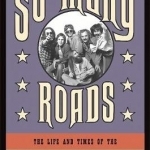
So Many Roads: The Life and Times of the Grateful Dead
Book
Fifty years after they first came together and changed the sound of rock'n' roll, the Grateful Dead...
BookInspector (124 KP) rated I Heart Hawaii (I Heart Series, Book 8) in Books
Sep 24, 2020
The protagonist in this book is Angela, and she is sharing her amusing life story and adventures. I absolutely adored Angela, she is very realistic, down to earth, and the situations she gets herself into made me laugh out loud. I really liked her friends as well. They seem truly one of a kind. The story is told from a single perspective, but it was sufficient for me.
I liked this book from the first chapter, it kept me guessing and intrigued. Even though this book is last in the series, as a first-time reader, I was fully able to understand what was going on and who was who, but I think this book would make more sense for people who read them all and have a better knowledge of all Angela’s adventures in the past. This novel is full of funny situations, and the reader is never left bored. I really liked the research done for this book, as well as a great portrayal of New York. (Do follow Lindsey on Insta, her stories are superb! And she shared her experience from the cat sanctuary in Hawaii, that was mentioned in the book! How awesome is that! ❤ 🐱
I really enjoyed the writing style of this book, it is easy to read, fluffy, and made me happy like a hug after a long day at work. 😀 The chapters are medium length, but divided into smaller parts as well, so it didn’t drag to me. The ending of this book is very well deserved and left me very satisfied with the outcome.
So, to conclude, it was an epic finish of the series. It had the well-loved characters, fast pace and lots of silly and funny situations, that made this book a great read. I am going to get the other books in series now, and if you are looking for something to brighten up your day or just a great summer read, this book is definitely a great pick. Please give it a try and I hope you will like it as much as I did. Enjoy!
I liked this book from the first chapter, it kept me guessing and intrigued. Even though this book is last in the series, as a first-time reader, I was fully able to understand what was going on and who was who, but I think this book would make more sense for people who read them all and have a better knowledge of all Angela’s adventures in the past. This novel is full of funny situations, and the reader is never left bored. I really liked the research done for this book, as well as a great portrayal of New York. (Do follow Lindsey on Insta, her stories are superb! And she shared her experience from the cat sanctuary in Hawaii, that was mentioned in the book! How awesome is that! ❤ 🐱
I really enjoyed the writing style of this book, it is easy to read, fluffy, and made me happy like a hug after a long day at work. 😀 The chapters are medium length, but divided into smaller parts as well, so it didn’t drag to me. The ending of this book is very well deserved and left me very satisfied with the outcome.
So, to conclude, it was an epic finish of the series. It had the well-loved characters, fast pace and lots of silly and funny situations, that made this book a great read. I am going to get the other books in series now, and if you are looking for something to brighten up your day or just a great summer read, this book is definitely a great pick. Please give it a try and I hope you will like it as much as I did. Enjoy!
Mothergamer (1616 KP) rated the PC version of The Elder Scrolls V: Skyrim in Video Games
Apr 3, 2019
I know. How is it that I had never played Skyrim until now? Many of my friends asked this. The only answer I have is that I had a ton of other games I was playing at the time so I just never got around to it. With the remaster, I figured this would be a great time to play it so I got the special edition for PS4 and I was excited to start my adventure.
Having ten different races to choose from is very cool and I decided on Wood Elf for my first play through, but for my next one I do want to play as a Khajiit (cat race) because they sound quite interesting. I was a little disappointed while creating my Wood Elf that the faces looked rather harsh and every expression looked like she was angry and ready to smash your face. It wasn't a big deal, but I wondered about the idea behind that design. Having played Elder Scrolls Online, the character design for the Elves has improved a lot, so maybe it had something to do with their design engine.
I did manage to create my character the way I liked eventually and once I was satisfied, I decided it was time for Pirotess to start her adventure (yes, I'm a Record of Lodoss War fan so I'm always Pirotess) and start exploring the world of Tamriel.
My Wood Elf Pirotess, ready for adventure!
There is so much to see and do in Skyrim. The game itself is huge and then you add the DLCs and there's even more to do. I got the initial introduction tutorial out of the way and the set up for the main story and then I ran around picking up quests. Between the radiant quests, side quests, and guild quests you never run out of adventures. I liked the Thieves Guild quests a lot because the story line for it was interesting. The Dark Brotherhood quests were also fun to do because of the great story content. My favorite armor was the Nightingale armor which was a reward for completing the Thieves Guild story line. I also liked my Dark Brotherhood mount which I jokingly called demon horse. His name was Shadowmere however and he was cool. He would go everywhere with me and he would even fight enemies with me which I thought was fantastic.
The Nightingale armor is the best!
If you want to take a break from adventuring, you can do things like crafting or build your own house with the Hearthfire DLC. You can also get married and adopt children with Hearthfire. This was one of the things that I found showed off the beauty of the gameplay in Skyrim. You can do as much or as little of the main story quests as you want. You can just run around crafting things, do side quests, or go hunting dragons. It's entirely up to you and gives you a vast amount of freedom for exploration and discovery. For me, it made the game a lot of fun and I just enjoyed running around discovering new places.
I also loved battling all the dragons and finding all the dragon shouts for my Dragonborn character. The battles are epic and the controls handle very smoothly. I love it when a game has great game controls and good camera angles. It definitely makes fighting a huge dragon easier. I enjoyed playing with all the different dragon shouts seeing what each one did. My favorites were frost breath and dragon aspect. Because of that exploration freedom level grinding was not a chore at all. I was just having fun and enjoying the game.
Taking down a dragon.
The environments are beautiful. I would find myself stopping often just to look around the different areas I was in because they are so well done. Whether it was a forest, snowy peak, or Dwarven ruin it always looked amazing and no two places looked alike. The musical soundtrack is amazing too setting the right atmosphere for each moment in the game.
You get followers too, but you can only have one at a time with you. Unfortunately if they die, they're dead for good unless you have the mods. I learned that the hard way with a couple of mine as they suffered from death by dragon. Most of the time, I just wandered alone because sometimes the followers would do stupid things like step on a switch and set off a trap. Once in a while I would take a follower with me just to change things up, usually a mage because they were useful for fighting dragons.
A beautiful view in Skyrim.
I enjoyed the main story in Skyrim as well. The lore was intriguing and some of the reveals about certain characters made for a great story. I also liked that a couple of the dragons were allies of a sort. I thought the dragon Paarthurnax was very cool and learning a few dragon shouts from him was fun. I was also thrilled that Pirotess got to fly on a dragon also. It was quite a sight! I finished the main story and it was a great finish to a fantastic story.
Pirotess chatting with Paarthurnax.
While the main story is finished, there's still a ton of things for me to do. I'm currently playing the Dawnguard and Dragonborn DLC as well as more side quests. I'm also enjoying crafting and building my houses with the Hearthfire DLC. For me, Skyrim is a blast to play and I love that there's always something going on and I continue to explore and have fun. There's always interesting things to see and I can't wait to play as a Khajiit for my next play through. Skyrim is a great game and I'm glad I finally got a chance to play it.
Having ten different races to choose from is very cool and I decided on Wood Elf for my first play through, but for my next one I do want to play as a Khajiit (cat race) because they sound quite interesting. I was a little disappointed while creating my Wood Elf that the faces looked rather harsh and every expression looked like she was angry and ready to smash your face. It wasn't a big deal, but I wondered about the idea behind that design. Having played Elder Scrolls Online, the character design for the Elves has improved a lot, so maybe it had something to do with their design engine.
I did manage to create my character the way I liked eventually and once I was satisfied, I decided it was time for Pirotess to start her adventure (yes, I'm a Record of Lodoss War fan so I'm always Pirotess) and start exploring the world of Tamriel.
My Wood Elf Pirotess, ready for adventure!
There is so much to see and do in Skyrim. The game itself is huge and then you add the DLCs and there's even more to do. I got the initial introduction tutorial out of the way and the set up for the main story and then I ran around picking up quests. Between the radiant quests, side quests, and guild quests you never run out of adventures. I liked the Thieves Guild quests a lot because the story line for it was interesting. The Dark Brotherhood quests were also fun to do because of the great story content. My favorite armor was the Nightingale armor which was a reward for completing the Thieves Guild story line. I also liked my Dark Brotherhood mount which I jokingly called demon horse. His name was Shadowmere however and he was cool. He would go everywhere with me and he would even fight enemies with me which I thought was fantastic.
The Nightingale armor is the best!
If you want to take a break from adventuring, you can do things like crafting or build your own house with the Hearthfire DLC. You can also get married and adopt children with Hearthfire. This was one of the things that I found showed off the beauty of the gameplay in Skyrim. You can do as much or as little of the main story quests as you want. You can just run around crafting things, do side quests, or go hunting dragons. It's entirely up to you and gives you a vast amount of freedom for exploration and discovery. For me, it made the game a lot of fun and I just enjoyed running around discovering new places.
I also loved battling all the dragons and finding all the dragon shouts for my Dragonborn character. The battles are epic and the controls handle very smoothly. I love it when a game has great game controls and good camera angles. It definitely makes fighting a huge dragon easier. I enjoyed playing with all the different dragon shouts seeing what each one did. My favorites were frost breath and dragon aspect. Because of that exploration freedom level grinding was not a chore at all. I was just having fun and enjoying the game.
Taking down a dragon.
The environments are beautiful. I would find myself stopping often just to look around the different areas I was in because they are so well done. Whether it was a forest, snowy peak, or Dwarven ruin it always looked amazing and no two places looked alike. The musical soundtrack is amazing too setting the right atmosphere for each moment in the game.
You get followers too, but you can only have one at a time with you. Unfortunately if they die, they're dead for good unless you have the mods. I learned that the hard way with a couple of mine as they suffered from death by dragon. Most of the time, I just wandered alone because sometimes the followers would do stupid things like step on a switch and set off a trap. Once in a while I would take a follower with me just to change things up, usually a mage because they were useful for fighting dragons.
A beautiful view in Skyrim.
I enjoyed the main story in Skyrim as well. The lore was intriguing and some of the reveals about certain characters made for a great story. I also liked that a couple of the dragons were allies of a sort. I thought the dragon Paarthurnax was very cool and learning a few dragon shouts from him was fun. I was also thrilled that Pirotess got to fly on a dragon also. It was quite a sight! I finished the main story and it was a great finish to a fantastic story.
Pirotess chatting with Paarthurnax.
While the main story is finished, there's still a ton of things for me to do. I'm currently playing the Dawnguard and Dragonborn DLC as well as more side quests. I'm also enjoying crafting and building my houses with the Hearthfire DLC. For me, Skyrim is a blast to play and I love that there's always something going on and I continue to explore and have fun. There's always interesting things to see and I can't wait to play as a Khajiit for my next play through. Skyrim is a great game and I'm glad I finally got a chance to play it.
Gareth von Kallenbach (980 KP) rated After Earth (2013) in Movies
Aug 7, 2019
At its core, After Earth is a coming of age story set in a future sci-fi world. With the story by Will Smith and directed by M Knight Shyamalan, those expecting the summer blockbusters that Will Smith is known for may be disappointed. Furthermore, those expecting an epic sci-fi film will also be disappointed. In many ways After Earth is a coming of age film for Jaden Smith, who takes center stage.
Set 1000 years in the future, mankind is fighting for survival against a race of creatures known as Ursa, who hunt humans down by smelling fear. The human Special Forces are led by General Cypher Raige played by Will Smith. Smith is a legendary ranger and revered among mankind because of his ability to “Ghost” which is to suppress his fear completely so the Ursa cannot sense him. Meanwhile his son Kitai, played by Will Smith’s real life son Jaden Smith, is desperately trying to impress his father by following in his footsteps. Kitai’s real test comes when the two crash land on the abandoned Earth and Kitai must face his crippling internal fear to save himself and his father.
Will Smith plays perhaps one of his most subdued roles of his career. No wise cracks, no bravado. He is very much the stern and stoic military man. As if to showcase his ability to completely control his fear his character also shows no other emotion either. This is a risky play for an actor who is known for his charisma. And without a doubt many will be turned off by it. But it works to help elevate Jaden’s performance, especially since Will speaks most of the dialog in the film by giving stern orders not only as commanding officer but as a father to son.
Jaden Smith’s performance starts out mediocre. He is not the over confident stupid youth you would mostly expect to find in this type of role, but rather he is the unassuming, emotional and somewhat weak character. From the time the characters crash land on earth he becomes the lead. At first his character is somewhat annoying as he is crippled by fear and emotions. But at the point when he starts to conquer those fears, we too get carried by his performance. He becomes stronger and I found myself actually involved in his journey. No longer trying to figure out what new obstacle he must face next, but rather in watching him grow from boy to man.
Visually the film is beautiful and refreshing. The sci-fi aspects of the film are unassuming which helps to not take away from the story being told. It was reminiscent of some of the 80s sci-fi films that were futuristic but limited and instead focused on story. The first act of the film is slow, however once the scene shifts to earth, the pacing of this film is excellent. It is one dangerous thing to the next in a race against time.
In the end I found myself enjoying this film more than I thought I would. I was surprised by Will Smith’s limited role but I was pleasantly surprised by Jaden’s growth on screen. The film had less visual sci-fi then I was expecting however in the end I did not seem to mind as I found myself more interested in the coming of age story. It is far from perfect and does not feel right being released during the summer blockbuster season. However in the end, it is worth a trip to the theater, even if it is only a matinee.
Set 1000 years in the future, mankind is fighting for survival against a race of creatures known as Ursa, who hunt humans down by smelling fear. The human Special Forces are led by General Cypher Raige played by Will Smith. Smith is a legendary ranger and revered among mankind because of his ability to “Ghost” which is to suppress his fear completely so the Ursa cannot sense him. Meanwhile his son Kitai, played by Will Smith’s real life son Jaden Smith, is desperately trying to impress his father by following in his footsteps. Kitai’s real test comes when the two crash land on the abandoned Earth and Kitai must face his crippling internal fear to save himself and his father.
Will Smith plays perhaps one of his most subdued roles of his career. No wise cracks, no bravado. He is very much the stern and stoic military man. As if to showcase his ability to completely control his fear his character also shows no other emotion either. This is a risky play for an actor who is known for his charisma. And without a doubt many will be turned off by it. But it works to help elevate Jaden’s performance, especially since Will speaks most of the dialog in the film by giving stern orders not only as commanding officer but as a father to son.
Jaden Smith’s performance starts out mediocre. He is not the over confident stupid youth you would mostly expect to find in this type of role, but rather he is the unassuming, emotional and somewhat weak character. From the time the characters crash land on earth he becomes the lead. At first his character is somewhat annoying as he is crippled by fear and emotions. But at the point when he starts to conquer those fears, we too get carried by his performance. He becomes stronger and I found myself actually involved in his journey. No longer trying to figure out what new obstacle he must face next, but rather in watching him grow from boy to man.
Visually the film is beautiful and refreshing. The sci-fi aspects of the film are unassuming which helps to not take away from the story being told. It was reminiscent of some of the 80s sci-fi films that were futuristic but limited and instead focused on story. The first act of the film is slow, however once the scene shifts to earth, the pacing of this film is excellent. It is one dangerous thing to the next in a race against time.
In the end I found myself enjoying this film more than I thought I would. I was surprised by Will Smith’s limited role but I was pleasantly surprised by Jaden’s growth on screen. The film had less visual sci-fi then I was expecting however in the end I did not seem to mind as I found myself more interested in the coming of age story. It is far from perfect and does not feel right being released during the summer blockbuster season. However in the end, it is worth a trip to the theater, even if it is only a matinee.
Bob Mann (459 KP) rated Denial (2016) in Movies
Sep 29, 2021
Jewry Trial.
It’s the mid-90’s and Deborah Lipstadt (Rachael Weisz, “The Lobster“), an American professor of Holocaust studies at a US university has written a book naming and shaming David Irving (Timothy Spall, “Mr Turner”) as a Nazi-apologist who denies that the Holocaust ever happened. Filing a law suit against Penguin Books and Lipstadt in the UK, Lipstadt chooses to fight rather than settle and takes the case to the High Courts in a much publicised trial.
Help is required and Lipstadt is assigned a hot-shot solicitor (if that’s not an oxymoron) in the form of Anthony Julius (Andrew Scott, “Sherlock”) and top barrister Richard Rampton (Tom Wilkinson, “Selma“). The stage is set for an epic legal battle that will establish not just legal precedent but also historical precedent affecting the entire Jewish people.
This film’s trailer really appealed to me, and I was looking forward to this film. And that view clearly also got through to people of my age bracket (and older) since the cinema was pretty full. But ultimately I was disappointed by the film.
But first the good points.
The cinematography by Haris Zambarloukos (“Thor”, “Mamma Mia”) is memorable, particularly for the Auschwitz tour which is done in an impressively bleak way on an astoundingly bleak winter’s day.
Andrew Scott, so woefully miscast as “C” in “Spectre“, here is a nice shoo-in for the cocksure but aloof expert. And Tom Wilkinson, who can seldom put a movie foot wrong, is also perfectly cast as the claret-swigging defence-lead: passionless and analytical even when facing the horrors of a trip to Auschwitz.
Timothy Spall’s Irving is well portrayed as the intelligent and articulate – albeit deluded – eccentric he no doubt is.
There are also some nice cameo performances, including John Sessions (“Florence Foster Jenkins“) as an Oxbridge history boffin and Mark Gatiss (“Sherlock”) as an Auschwitz expert.
However, these positives don’t outweigh the big negative that the broader ensemble cast never really gels together well. The first time this is evident is in an office meeting of the defence team where the interactions have a sheen of falseness about them that is barely hidden behind some weak script and forced nervous laughter. Tea can’t help.
In particular, attractive Kiwi actress Caren Pistorius (“The Light Between Oceans“) seems to have been given a poor hand to play with as the junior member of the team. A late night interaction with her boyfriend, who whinges at her for having to work late, seems to be taken from a more sexist age: “the 70’s called and they want their script back”.
None of this is helped by Rachel Weisz, who I’m normally a fan of, but here she is hindered by some rather dodgy lines by David Hare (“The Reader”) and an unconvincing (well, to me at least) New York accent. For me I’m afraid she just doesn’t seem to adequately convey her passion for the cause.
While the execution of the court scenes are well done, the film is hampered by its opening five words: “Based on a True Story”. This is something of a disease at the moment in the movies, and whilst in many films (the recent “Lion” for example) the story is in the journey rather than the result, with “Denial” the story is designed to build to a tense result that unfortunately lacks any sort of tension – since the result is pre-ordained.
This is all a great shame, since director Mick Jackson (“LA Story”, in his first feature for nearly 15 years) has the potential here for a great movie. Perhaps a more fictionalised version (“vaguely based on a true story”) might have provided more of a foundation for a better film?
Help is required and Lipstadt is assigned a hot-shot solicitor (if that’s not an oxymoron) in the form of Anthony Julius (Andrew Scott, “Sherlock”) and top barrister Richard Rampton (Tom Wilkinson, “Selma“). The stage is set for an epic legal battle that will establish not just legal precedent but also historical precedent affecting the entire Jewish people.
This film’s trailer really appealed to me, and I was looking forward to this film. And that view clearly also got through to people of my age bracket (and older) since the cinema was pretty full. But ultimately I was disappointed by the film.
But first the good points.
The cinematography by Haris Zambarloukos (“Thor”, “Mamma Mia”) is memorable, particularly for the Auschwitz tour which is done in an impressively bleak way on an astoundingly bleak winter’s day.
Andrew Scott, so woefully miscast as “C” in “Spectre“, here is a nice shoo-in for the cocksure but aloof expert. And Tom Wilkinson, who can seldom put a movie foot wrong, is also perfectly cast as the claret-swigging defence-lead: passionless and analytical even when facing the horrors of a trip to Auschwitz.
Timothy Spall’s Irving is well portrayed as the intelligent and articulate – albeit deluded – eccentric he no doubt is.
There are also some nice cameo performances, including John Sessions (“Florence Foster Jenkins“) as an Oxbridge history boffin and Mark Gatiss (“Sherlock”) as an Auschwitz expert.
However, these positives don’t outweigh the big negative that the broader ensemble cast never really gels together well. The first time this is evident is in an office meeting of the defence team where the interactions have a sheen of falseness about them that is barely hidden behind some weak script and forced nervous laughter. Tea can’t help.
In particular, attractive Kiwi actress Caren Pistorius (“The Light Between Oceans“) seems to have been given a poor hand to play with as the junior member of the team. A late night interaction with her boyfriend, who whinges at her for having to work late, seems to be taken from a more sexist age: “the 70’s called and they want their script back”.
None of this is helped by Rachel Weisz, who I’m normally a fan of, but here she is hindered by some rather dodgy lines by David Hare (“The Reader”) and an unconvincing (well, to me at least) New York accent. For me I’m afraid she just doesn’t seem to adequately convey her passion for the cause.
While the execution of the court scenes are well done, the film is hampered by its opening five words: “Based on a True Story”. This is something of a disease at the moment in the movies, and whilst in many films (the recent “Lion” for example) the story is in the journey rather than the result, with “Denial” the story is designed to build to a tense result that unfortunately lacks any sort of tension – since the result is pre-ordained.
This is all a great shame, since director Mick Jackson (“LA Story”, in his first feature for nearly 15 years) has the potential here for a great movie. Perhaps a more fictionalised version (“vaguely based on a true story”) might have provided more of a foundation for a better film?
RəX Regent (349 KP) rated Chitty Chitty Bang Bang (1968) in Movies
Mar 7, 2019
Contains spoilers, click to show
This was the first time that I've seen this children's classic since I was a child, and I suppose that I'd hoped that it would live up to its reputation. In all fairness though, I din't like it that much when I was a child, if I'm honest and my children, though some DO like it, others seemed to have mixed feelings. At best, it's likable but never lovable and at worst, it just isn't liked at all.
So, as an adult I watched this loose adaptation of James Bond's, Ian Flemming's novel, with every good intention, but in the end was left disappointed. Firstly, at 2 hours and 20 minutes long, it feels like an epic, and a completely unnecessary one at that. Its intermission is turned into a Batfink or Adam West's Batman styled cliffhanger rather than a thematic or narrative break that it traditionally should have been, even going so far as to recap the action in the second act!
The songs weren't great either, generally bordering on tedium rather than holding my interest. The story seems to be a little off kilter too, with a seemingly fatal crash destroying the eponymous car before its eventual restoration by Dick van Dyke. This was the culmination of a five-minute title sequence showcasing the early Grand Prix's of 1907 and '08 which for a family film seemed to drag somewhat.
But after an hour of songs and character development, we finally take off in the flying car to the fantasy land of Vulgaria, only for the whole experience to be a fantastical story told by Van Dyke's, Caractacus Potts! All in all, this was a strange film, but not in an entertaining way like Willy Wonka's Chocolate Factory, the connection being Roald Dahl's involvement with the screenplay, but in a rather boring way, with events just seeing to happen without any really cause or need. One hour of story, then another one of fantasy. How many other films can boast this kind narrative twist and get away with it. It just seemed to be indulgent and plodding.
It would defiantly have been improved if the car was actually magical and did actually take them on this adventure rather than suggesting that it is perfectly okay to sing and dance around the real world but it's a stretch too far to have a flying car! It should have been a fantasy through and through rather than six of one and half a dozen of the other.
Ultimately, Overrated in my opinion and since the view of FOUR children, boys and girls ranging from 7 – 15, is that it's watchable rather than fully enjoyable, I suspect that this film is being viewed through rose tinted glasses.
So, as an adult I watched this loose adaptation of James Bond's, Ian Flemming's novel, with every good intention, but in the end was left disappointed. Firstly, at 2 hours and 20 minutes long, it feels like an epic, and a completely unnecessary one at that. Its intermission is turned into a Batfink or Adam West's Batman styled cliffhanger rather than a thematic or narrative break that it traditionally should have been, even going so far as to recap the action in the second act!
The songs weren't great either, generally bordering on tedium rather than holding my interest. The story seems to be a little off kilter too, with a seemingly fatal crash destroying the eponymous car before its eventual restoration by Dick van Dyke. This was the culmination of a five-minute title sequence showcasing the early Grand Prix's of 1907 and '08 which for a family film seemed to drag somewhat.
But after an hour of songs and character development, we finally take off in the flying car to the fantasy land of Vulgaria, only for the whole experience to be a fantastical story told by Van Dyke's, Caractacus Potts! All in all, this was a strange film, but not in an entertaining way like Willy Wonka's Chocolate Factory, the connection being Roald Dahl's involvement with the screenplay, but in a rather boring way, with events just seeing to happen without any really cause or need. One hour of story, then another one of fantasy. How many other films can boast this kind narrative twist and get away with it. It just seemed to be indulgent and plodding.
It would defiantly have been improved if the car was actually magical and did actually take them on this adventure rather than suggesting that it is perfectly okay to sing and dance around the real world but it's a stretch too far to have a flying car! It should have been a fantasy through and through rather than six of one and half a dozen of the other.
Ultimately, Overrated in my opinion and since the view of FOUR children, boys and girls ranging from 7 – 15, is that it's watchable rather than fully enjoyable, I suspect that this film is being viewed through rose tinted glasses.
Ross (3284 KP) rated Game Of Thrones - Season 8 in TV
May 29, 2019 (Updated May 30, 2019)
A bit of a let-down
I don't think I will ever understand why the decision was made to squeeze the final season into 6 episodes. This seems to have put all the onus on ending storylines quickly and less on building tension. And yet, so much of this series was slow, drawn out padding.
There were two episodes of pretty much non-stop action. These were visually stunning, however so badly written and incongruous. Given how well the series as a whole has tried to mimic medieval European history, to have a battle start and end in a very short time was simply nonsense. No attention to likely battle plans was attempted (a sieging army wouldn't attack, and a besieged army wouldn't come out onto the field of battle), it was just a CGI-heavy, smoky, frantic fight.
The rest of the series was a much slower pace, which is GoT's style. However those episodes were so flat and dull as to be like someone else entirely had written them. Gone was the political wrangling, the back-stabbing and the two-facedness (generally, there were some brief moments of this).
The focus of each episode was also almost solely in one place, where it has always been at its best by showing so many things at a time. Rather than this being the convergence of all story threads, this just came across as storytelling-by-numbers.
I had no problems with Daenerys' change in character - it had been so well hinted at that you didn't have to be the 3-eyed raven to see it coming. It also felt totally in line with her past decisions, and family history, and this was one of the few parts I felt were well written and understandable.
A lot of fan-favourite characters got shat on in the final few series, but I don't see why people are surprised - the main character of the first series was beheaded in that same series, so this was quite normal for GoT.
I really did not like the final outcome of the series, with Bran on the throne and the whole scene with all the lords (some of whom I still don't recognise) was painful - why would they listen to Tyrion and go with his "can't defeat a story" nonsense.
Overall, it was not a finale worthy of the series as a whole, but it was a reasonably enjoyable and at times thrilling conclusion to an epic story.
And one good thing to come out of this is the motivation it will give other writers: get on with finishing your stories or Benioff and Weiss will do it for you!
There were two episodes of pretty much non-stop action. These were visually stunning, however so badly written and incongruous. Given how well the series as a whole has tried to mimic medieval European history, to have a battle start and end in a very short time was simply nonsense. No attention to likely battle plans was attempted (a sieging army wouldn't attack, and a besieged army wouldn't come out onto the field of battle), it was just a CGI-heavy, smoky, frantic fight.
The rest of the series was a much slower pace, which is GoT's style. However those episodes were so flat and dull as to be like someone else entirely had written them. Gone was the political wrangling, the back-stabbing and the two-facedness (generally, there were some brief moments of this).
The focus of each episode was also almost solely in one place, where it has always been at its best by showing so many things at a time. Rather than this being the convergence of all story threads, this just came across as storytelling-by-numbers.
I had no problems with Daenerys' change in character - it had been so well hinted at that you didn't have to be the 3-eyed raven to see it coming. It also felt totally in line with her past decisions, and family history, and this was one of the few parts I felt were well written and understandable.
A lot of fan-favourite characters got shat on in the final few series, but I don't see why people are surprised - the main character of the first series was beheaded in that same series, so this was quite normal for GoT.
I really did not like the final outcome of the series, with Bran on the throne and the whole scene with all the lords (some of whom I still don't recognise) was painful - why would they listen to Tyrion and go with his "can't defeat a story" nonsense.
Overall, it was not a finale worthy of the series as a whole, but it was a reasonably enjoyable and at times thrilling conclusion to an epic story.
And one good thing to come out of this is the motivation it will give other writers: get on with finishing your stories or Benioff and Weiss will do it for you!
